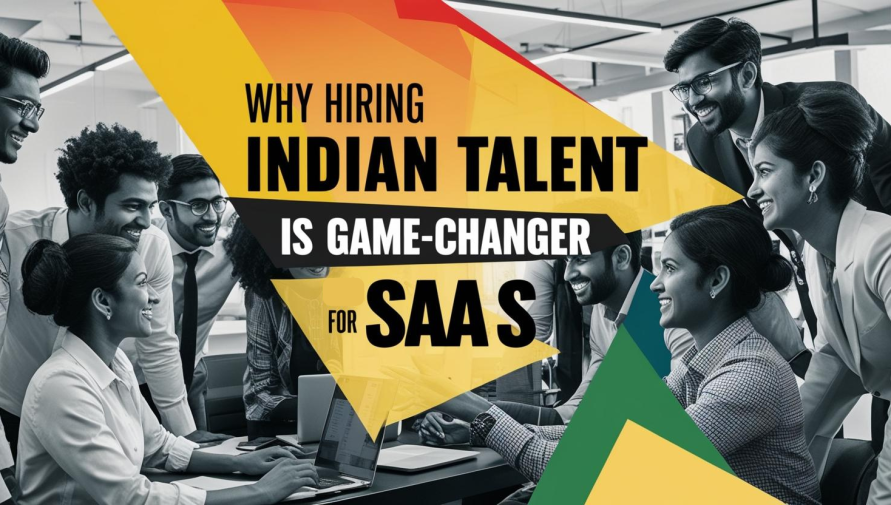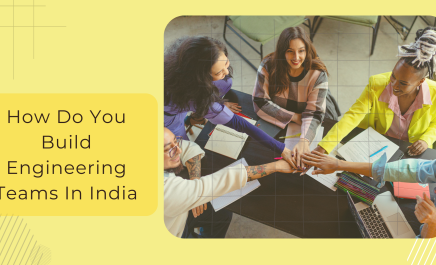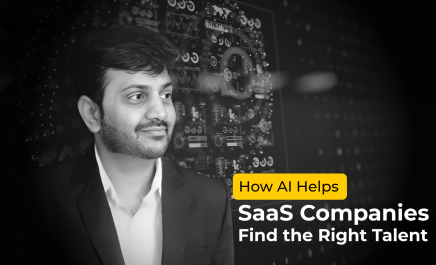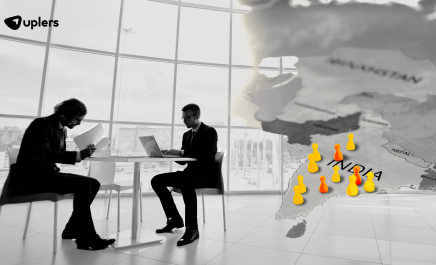Why Hiring Indian Talent Could Be a Game-Changer for SaaS Companies
- Anwesha Roy
- October 25, 2024
- 4 Minute Read

When it comes to building a successful SaaS company, the right team is everything. During a recent conversation with Amit Sengupta, VP at Parsons Corporation, I realized just how much Indian talent can contribute to global businesses. Their technical skills, cultural adaptability, and human-centered leadership style make them stand out in today’s competitive market.
Here are the key takeaways from our discussion and why SaaS companies should look to India for their next great hire.
What’s the Impact of the ‘Gray Tsunami’ on SaaS Leadership?
One of the most pressing challenges SaaS companies face today is the “gray tsunami.” This term describes the wave of retirements among baby boomers in the workforce. “Some companies are losing up to 3,000 employees annually due to retirements,” Amit noted, emphasizing the leadership vacuum this creates.
For SaaS companies, this means two things:
- Opportunities for Indian talent to step into senior roles. Their technical expertise, adaptability, and global perspective position them as natural leaders.
- Retention becomes critical. Amit explained, “Mapping the right talent to the right role and creating a clear career trajectory benefits both the company and the employee.” When people see a future in their role, they are more likely to stay engaged and loyal.
SaaS leaders can address these challenges by investing in mentorship, career development plans, and pathways for growth tailored to their employees.
Why Is Empathy in Leadership So Important?
SaaS companies are all about collaboration, and strong leadership is the glue that holds teams together. Amit shared something that stayed with me: “Indian managers often bring a unique level of empathy, treating people as individuals rather than just employees.”
This approach isn’t just kind—it’s effective. When leaders understand their team’s strengths, challenges, and motivations, they foster loyalty and trust. In a SaaS setup where creativity and teamwork drive results, empathetic leadership can make all the difference.
How Can Indian Talent Help Navigate Hybrid Work?
Hybrid and remote work are the new normal, but they’ve brought their own set of challenges. As Amit pointed out, “The shift to hybrid work has made it harder for senior and junior employees to connect and collaborate.”
Indian professionals, known for their flexibility and problem-solving skills, shine in such environments. They’re quick to adapt, whether it’s working across time zones or collaborating with diverse teams. For SaaS companies balancing remote and in-office work, this adaptability can be a huge advantage.
Is India Really the Hub of Tech Talent?
The numbers speak for themselves: over 1.5 million engineers graduate from India every year. With such a large pool of talent, it’s no surprise that many of the world’s leading tech companies turn to India to fill critical roles.
“SaaS sectors thrive on skilled professionals, and India consistently produces high-quality engineers,” Amit said. The combination of technical expertise and a strong work ethic makes Indian professionals a natural fit for complex, fast-paced industries like SaaS.
How Can SaaS Companies Retain Top Talent?
Retention is a recurring challenge for SaaS leaders, especially when competition for talent is fierce. Amit emphasized that matching employees with roles that align with their skills and goals is critical. “Retention starts with ensuring people see a clear career path and feel valued in their roles,” he explained.
Beyond career growth, retention also depends on creating a supportive work environment. Indian professionals often value mentorship and teamwork, and SaaS companies that foster these dynamics will find it easier to retain their top performers.
By investing in personalized career development and offering flexibility, SaaS leaders can reduce turnover and build a stable, motivated workforce.
How Does High-Context Communication Shape Indian Talent?
Indian professionals often come from a high-context communication culture, where meaning is derived from non-verbal cues, relationships, and implied understanding. In contrast, Western workplaces typically rely on low-context communication, where clarity and directness are prioritized.
Amit shared an interesting observation: “In India, people tend to overthink, assuming that others will read between the lines. This can lead to miscommunication in low-context cultures like the US, where explicit communication is valued.”
This cultural difference can sometimes create gaps in understanding, but it also offers an opportunity for growth. By bridging high-context communication with the low-context clarity expected in global workplaces, Indian professionals can develop a well-rounded communication style that sets them apart.
SaaS companies can support this evolution by providing training in effective communication and presentation skills, ensuring that their teams are not only technically brilliant but also articulate and confident in expressing their ideas.
Do Cultural Values Matter in a SaaS Team?
One thing that really struck me during our conversation was how Indian values align with SaaS goals. While US culture often emphasizes individual success, Indian culture thrives on teamwork and collective achievement.
“Indian professionals are natural collaborators, and that makes them perfect for team-driven environments,” Amit said. Their ability to prioritize the team over individual gain creates a culture of mutual respect and shared purpose—something every SaaS company needs.
Why Should SaaS Companies Invest in Indian Talent?
Indian professionals aren’t just employees—they’re cultural ambassadors. “Their success reflects their ability to blend technical brilliance with strong values,” Amit shared.
For SaaS companies, hiring Indian talent means gaining team members who are not only skilled but also bring unique perspectives that enrich the workplace. It’s an opportunity to build diverse, innovative teams that can tackle global challenges with creativity and confidence.
What’s the Big Takeaway?
For SaaS companies, hiring Indian talent isn’t just about filling roles—it’s about shaping the future of work. Their technical skills, adaptability, and collaborative spirit make them a perfect fit for the fast-paced, ever-evolving SaaS industry.
As Amit said, “Indian professionals in the US serve as cultural ambassadors.” Their success is a testament to the power of diversity, and for SaaS companies ready to embrace it, the opportunities are endless.
References:

Thank you for submitting the details!
We will keep your information safe. Feel free to contact us with any questions at hello@uplers.com
Please check your email for next steps shared by Robert.

















